The beauty and cosmetics industry is no stranger to innovation, and AI in the beauty industry is the latest trend transforming how we create, market, and experience beauty products. From personalized recommendations to virtual try-ons, artificial intelligence is reshaping the way we interact with cosmetics and skincare.
The advent of AI in fashion and beauty has ushered in a new era of hyper-personalization, data-driven insights, and streamlined operations. As technology continues to evolve, AI-powered tools are becoming increasingly sophisticated, enabling brands to deliver tailored experiences, optimize product development, and stay ahead of the curve.
The benefits of AI are truly vast and impactful. From AI-powered digital advertising to fraud detection, AI helps us reach the right audience and protect brand integrity. It enables faster product development and more effective marketing strategies, driving growth and innovation in the beauty industry.
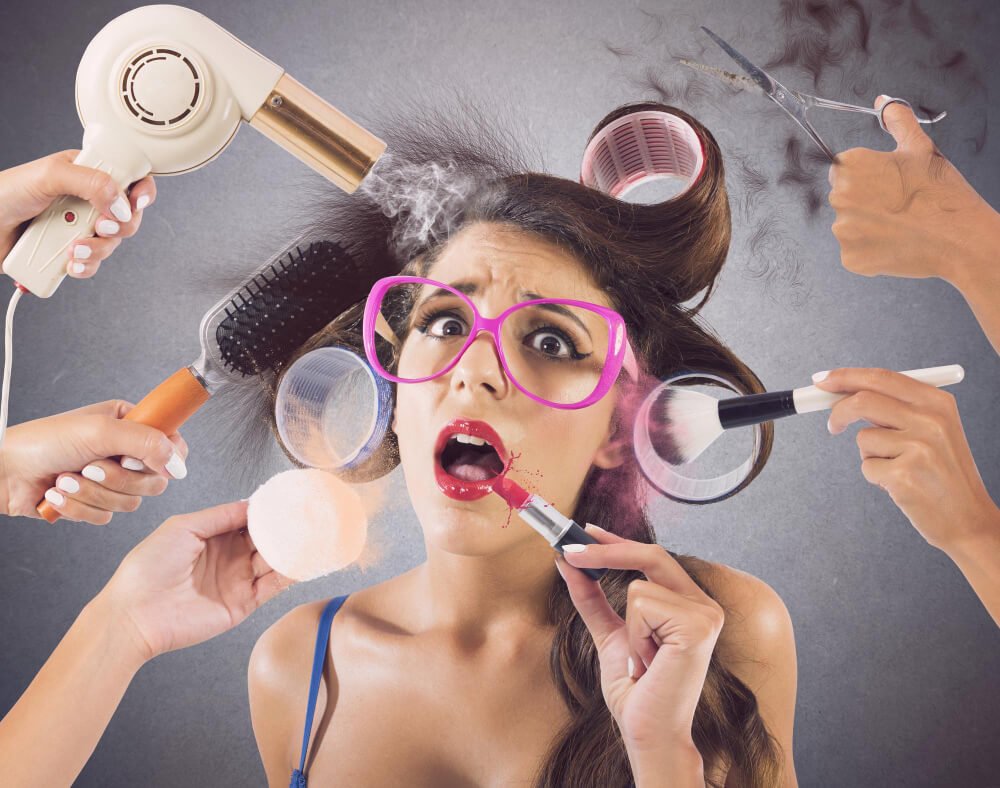
What Is AI In The Beauty Industry?
Artificial intelligence (AI) in the beauty industry refers to the strategic integration of intelligent algorithms and machine learning technologies to enhance and streamline various aspects of the business.
It encompasses a wide range of applications, from product development and formulation to personalized customer experiences and marketing strategies.
AI-powered tools are revolutionizing how beauty brands operate, enabling them to analyze vast amounts of data to identify trends, predict consumer preferences, and optimize their product offerings.
For instance, AI algorithms can be used to analyze skin conditions, recommend personalized skincare routines, and even virtually simulate makeup looks. Additionally, AI-powered chatbots are enhancing customer service by providing instant support and personalized recommendations.
AI-driven marketing campaigns are now delivering targeted messages and maximizing engagement. Moreover, AI-powered video production creates engaging content for beauty brands of all scales.
The beauty industry is rapidly embracing AI to gain a competitive edge, improve efficiency, and deliver more personalized and engaging experiences to their customers.
How Artificial Intelligence Can Be Used In The Beauty Industry?
Artificial intelligence (AI) has become a game-changer in the beauty industry, transforming how we discover, personalize, and purchase beauty products. AI-powered tools for the beauty industry are now essential for creating engaging and personalized shopping experiences on your own platforms.
According to a PwC report, 63% of consumers purchase products directly from brands’ websites rather than general e-commerce sites.
We can leverage artificial intelligence in the beauty industry to analyze vast amounts of data, predict trends, and understand consumer preferences.
This enables brands to develop innovative products, offer personalized recommendations, and create targeted marketing campaigns. AI-powered virtual try-on tools and skin analysis apps allow customers to experiment with different products and shades before purchasing, boosting confidence and reducing the likelihood of returns.
Additionally, AI-driven chatbots provide instant customer support, answer queries, and guide customers through their purchase journey, enhancing the overall shopping experience.

The Future Of Beauty Industry With AI
The future of the beauty industry with AI is set to be more personalized, efficient, and innovative than ever before. We’re looking at a world where AI will drive everything from product development to customer experiences.
According to a report by InsightAce Analytics, the global market size of artificial intelligence in the beauty and cosmetic industry will reach $15.75 billion by 2031, with a projected CAGR of 19.6%.
You’ll see AI-powered skincare devices that analyze your skin in real-time and adjust treatments accordingly. We’ll have virtual makeup artists powered by AI in beauty and cosmetics that can give you perfect looks for any occasion. Imagine trying on makeup using advanced AI in animation and VFX, making online shopping more immersive.
AI will also revolutionize product formulation, creating custom blends tailored to individual needs. Behind the scenes, AI will optimize supply chains and predict trends with unprecedented accuracy.
This transformation is already underway. The future of beauty is AI-driven, and it’s coming faster than you might think.
12 Best Uses Cases And Strategies To Implement AI In The Beauty Industry: Complete Roadmap For 2024
Artificial intelligence is a powerful tool that not only helps us to scale beauty and cosmetic businesses but can supercharge any business you can think of. Our team of AI experts have identified 12 ways to incorporate AI in the beauty industry to drive maximum growth and better ROI.
Beauty Trends Prediction

In the dynamic beauty industry, staying ahead of trends is vital. Accurately predicting beauty trends can significantly impact your business’s success.
According to a paper published on ResearchGate, 86.2% of female consumers read fashion and beauty blogs to keep up with the latest trends.
This statistic highlights the critical role of trend prediction in the beauty industry, ensuring that brands can stay ahead by accurately forecasting what their customers will want next.
AI tools for the beauty industry are transforming trend forecasting. Leveraging artificial intelligence, you can gain valuable insights into consumer preferences, emerging styles, and potential market shifts. This competitive edge allows you to align your products and marketing strategies with consumer demands.
To harness the power of AI in beauty trend prediction, utilize advanced algorithms and data analysis. You can use tools like Trendalytics or Heuritech to analyze this data and identify emerging patterns. You can also employ Google Trends, Trendwatching, and Spate to gain deeper insights into consumer behavior and preferences.
All these AI-powered tools analyze data from social media, fashion shows, and online publications to identify patterns and predict upcoming trends. These tools also offer comprehensive reports on trending colors, styles, and products, enabling you to make informed decisions and maintain a competitive advantage.
Product Formulation

Beauty product formulation is the backbone of any successful cosmetic brand. Creating products that are effective, safe, and appealing to consumers is a complex process, but AI in the beauty industry is simplifying it significantly.
Efficient product formulation is essential for several reasons. It ensures that products meet regulatory standards, perform as expected, and resonate with your target audience. By optimizing formulations, you can reduce costs, enhance product efficacy, and gain a competitive edge.
Artificial intelligence streamlines the formulation process by analyzing vast datasets on ingredient interactions, safety profiles, and consumer preferences.
AI algorithms can predict how different ingredients will perform together, identify potential allergens or irritants, and even suggest novel combinations to create unique and innovative products.
To use AI in product formulation, start by feeding your existing data on ingredients, formulations, and consumer feedback into an AI system. Tools like Givaudan’s Carto can help you explore new ingredient combinations and predict their effectiveness.
Tools like Molecular You, Insilico Medicine, Coptis, and Evonik Dr. Straetmans are also excellent for this purpose. These AI-powered tools use advanced algorithms to suggest the best combinations of ingredients, ensuring the final product is safe to use.
These new-age tools also help us create products that are not only effective but also align with consumer preferences and market trends.
Beauty Product Development
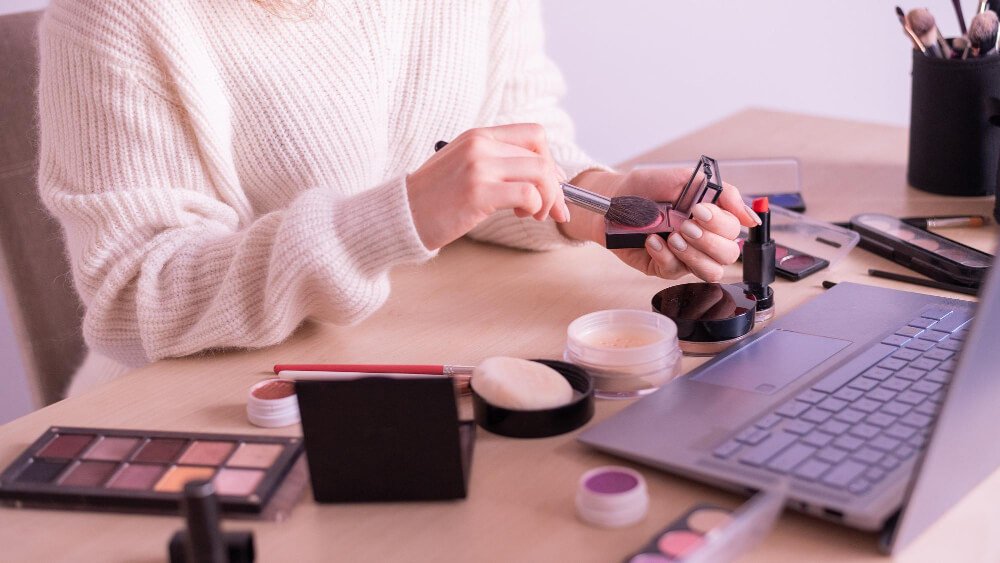
Beauty product development is the comprehensive process of bringing a new cosmetic product to market. It involves ideation, formulation, testing, packaging, and marketing.
In a competitive market, innovative and effective product development is essential for survival. The role of AI in the beauty industry is expanding rapidly, and incorporating it into your product development process can give you a significant edge.
Artificial intelligence can now also help you generate AI-based business ideas in the beauty industry by analyzing trends, consumer feedback, and competitor offerings. It can also optimize formulations, personalize products, and even predict market success.
To harness AI’s power in product development, explore AI-driven platforms that offer trend analysis, concept testing, and consumer feedback analysis.
You can use tools like Revieve for personalized product recommendations, Proven Skincare for AI-driven skincare formulations, and Beauty Matching Engine for personalized product matching.
You can also leverage My Beauty Matches for customized skincare formulations and Curology for AI-powered skin analysis and product development.
These tools can help you identify white spaces in the market, refine product concepts, and even predict consumer reactions. Additionally, this technology-driven approach not only enhances efficiency but also fosters creativity and innovation in product development.
Skin Analysis
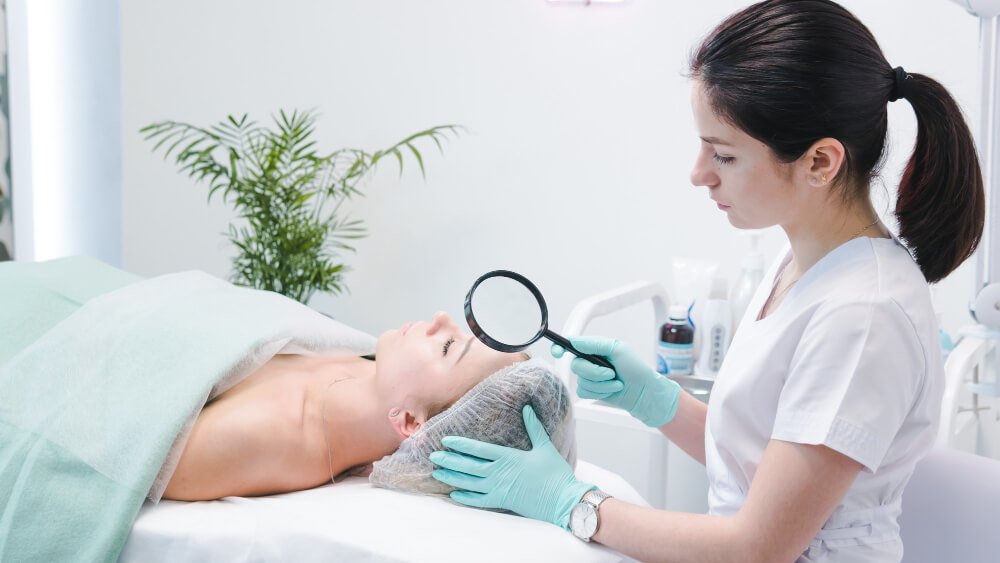
Skin analysis is the process of assessing an individual’s skin condition to identify concerns like wrinkles, fine lines, hyperpigmentation, and acne.
Accurate skin analysis is the foundation of effective skincare. It’s also a crucial step in recommending personalized skincare products and treatments.
As per Verified Market Reports, the total global market size of skin care apps was valued at $24.1 billion in 2023, highlighting the growing demand for AI-powered skin analysis solutions in the beauty industry.
Implementing AI-powered skin analysis can help you cater to this demand by providing accurate and objective assessments, enhancing customer satisfaction, and boosting sales.
To incorporate AI into skin analysis, consider integrating AI tools for skin analysis into your website or app. You can use platforms like Skin Analytics for accurate skin issues detection, Skinive for AI-driven skin health assessment, and Olay Skin Advisor for personalized product recommendations.
You can also leverage Haut.AI for comprehensive skin analysis and SkinIO for tracking skin changes over time.
These tools often utilize computer vision technology to analyze selfies or photos uploaded by users, identifying various skin concerns and recommending suitable products. You can also explore AI-powered skin diagnostic devices for in-store consultations.
Shade Matching

Shade matching is crucial for finding the perfect foundation and other makeup products that blend seamlessly with individual skin tones. This process ensures that consumers get a flawless, natural look that enhances their beauty.
Implementing shade matching through AI is transformative for the beauty industry. AI in the beauty industry can accurately match skin tones to products, ensuring customers find their perfect match quickly and easily. This leads to higher satisfaction and fewer returns.
According to a report published by Digital Commerce 360, Sephora’s AI-powered Color iQ database now has over 10,000 skin tones and can match that with 8,000 SKUs of foundation. This kind of precision is a game-changer for online retailers.
To use AI for shade matching, start by integrating virtual try-on tools into your website or app. You can use platforms like Findation for foundation matching across brands, Mira Beauty for AI-powered beauty product recommendations, and Sloy for virtual makeup try-ons.
You can also leverage Visage Technologies for facial analysis and Skinsight for skin tone analysis and product matching. These tools help us provide a personalized shopping experience, boosting sales and customer loyalty.
By incorporating AI for shade matching, you can significantly enhance the shopping experience. This technology not only helps consumers find the right products but also offers valuable insights for brands looking to launch an e-commerce business with AI.
Enhanced Brand Storytelling

Enhanced brand storytelling is the use of technology to create immersive and personalized narratives that resonate with consumers on a deeper level. It’s about moving beyond traditional advertising and connecting with your audience emotionally.
According to a Power Reviews survey, 53% of consumers worldwide now buy beauty products from online stores. This statistic highlights the importance of effective online storytelling in reaching and engaging with a broader audience.
Leveraging AI tools for branding can help you craft compelling stories that are tailored to individual preferences, increasing engagement and loyalty. AI-powered digital marketing can then deliver these stories across various channels, creating a cohesive and impactful brand experience.
To enhance your brand storytelling with AI, consider using tools that can analyze customer data to identify their interests and pain points.
This information can be used to create personalized content that speaks directly to their needs. You can also leverage AI-powered chatbots to deliver interactive stories that engage customers in real time.
You can use tools like Persado for AI-driven content creation, Phrasee for optimizing email subject lines and ad copy, and Atomic Reach for content optimization. Additionally, you can also leverage TextCortex for visual content analysis and Lately for social media content creation.
These tools help us craft compelling stories that resonate with our audience, driving engagement and sales in the competitive beauty market.
Personalized Makeup Tutorials
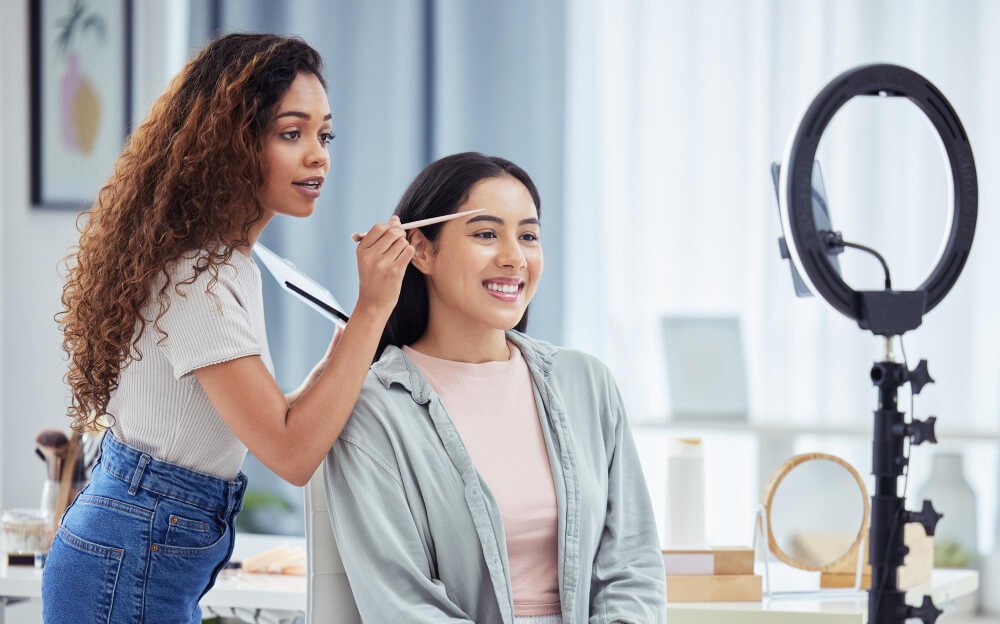
Personalized makeup tutorials are step-by-step guides tailored to an individual’s unique features, skin tone, and preferences. It’s like having a personal makeup artist at your fingertips.
Consumers are increasingly seeking personalized experiences, and makeup tutorials are no exception. By leveraging AI in the beauty industry, you can create tutorials that cater to individual needs, boosting engagement and fostering a sense of connection with your brand.
This not only enhances customer satisfaction but also presents an opportunity for personal branding with AI, positioning your brand as a leader in personalized beauty solutions.
To implement AI-powered personalized makeup tutorials, explore platforms that offer virtual try-on capabilities and facial recognition technology.
You can use tools like YouCam Makeup for virtual makeup try-ons and tutorials, Meitu for AI-powered beauty filters and editing, and FaceApp for facial feature analysis. You can also leverage Modiface for realistic AR makeup simulations and Virtual Try On for AI-powered virtual makeovers.
These tools can analyze a user’s facial features and recommend makeup techniques and products that complement their unique beauty. With AI-driven personalized tutorials, we can ensure that each user gets the best possible guidance tailored to their unique needs, leading to better makeup applications and happier customers.
Personalized Makeup And Skincare Recommendations
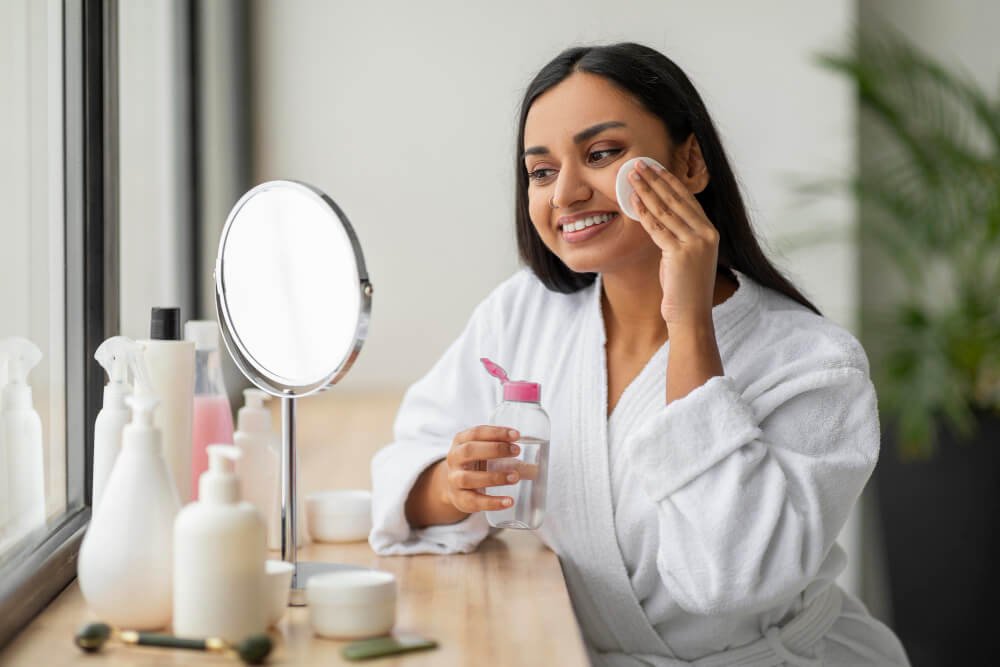
Personalized makeup and skincare recommendations involve suggesting products that align with an individual’s skin type, concerns, preferences, and budget. It’s like having a personal shopper who knows your skin inside and out.
Personalized beauty product recommendations can significantly improve the customer experience and drive sales.
According to a survey report published by Nosto, 62% of female shoppers buy the same products that they have used before when shopping online. Personalized recommendations can encourage them to explore new products that they might not have considered otherwise.
It also fosters a sense of trust and loyalty as customers feel understood and catered to.
To implement AI-powered personalized recommendations, consider using platforms that analyze customer data, such as purchase history, browsing behavior, and quiz responses.
can then use tools like Vue.ai for visual AI-powered recommendations, Lily AI for product attribute tagging and recommendations, and Optimizely for personalized e-commerce experiences. You can also leverage Dynamic Yield for personalization across multiple channels and Tryolabs for AI-driven customer insights and product matching.
These AI-powered tools help us provide a more personalized shopping experience, guiding customers to products that best suit their needs and preferences.
Generate Marketing Content

Generating marketing content involves creating engaging text, images, and videos to promote your beauty products or services. It’s the voice of your brand, reaching out to potential customers and building relationships.
Effective marketing content is crucial for attracting and retaining customers. Artificial intelligence in the beauty industry is revolutionizing content creation, allowing you to generate high-quality, personalized content at scale.
According to a McKinsey report, generative AI can boost the productivity of marketing by up to 15%, enabling you to reach a wider audience and drive more sales.
To leverage AI for content generation, explore tools that can help you create compelling product descriptions, social media posts, and email campaigns. You can also use AI-powered image and video generators to create AI-generated digital assets that visually showcase your products.
You can use tools like Jasper for AI-powered copywriting, Copysmith for generating product descriptions and ad copy, and Writesonic for creating various types of marketing content. Besides, you can also leverage Midjourney or Stable Diffusion to create AI-generated digital assets like images and graphics.
Synthesia is another great tool for producing AI-powered video content. These tools help us create diverse, engaging marketing materials that capture attention and drive conversions in the competitive beauty market.
Optimize Creative Campaigns
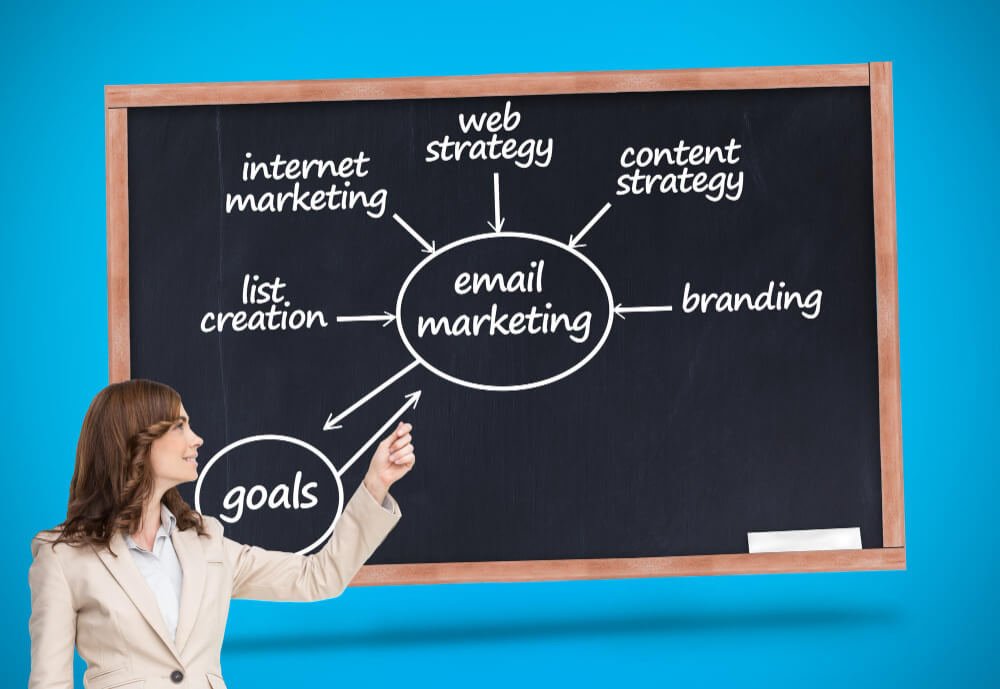
Optimizing creative campaigns involves fine-tuning advertising strategies to maximize engagement and conversions. It ensures that marketing efforts are both effective and efficient.
Implementing campaign optimization through AI in the beauty industry is essential for staying competitive. AI-powered social media marketing helps us understand and respond to consumer behavior in real time. This approach leads to more targeted and impactful campaigns, enhancing brand visibility and customer engagement.
You can use artificial intelligence to analyze data from various campaigns, identify successful elements, and make data-driven adjustments. AI tools can also help you identify what works and what doesn’t, allowing you to refine your campaigns and maximize your ROI.
As per a Meta report, 46% of makeup shoppers and 36% of skincare shoppers discover new products online and through social media.
To use AI for campaign optimization, start by collecting and analyzing data from your existing campaigns and customer interactions. You can use tools like Albert.ai for AI-driven marketing campaigns and Pathmatics for competitive intelligence and ad strategy optimization.
You can also use Pencil to create AI-generated ad creative. Additionally, you can also leverage Sprout Social for social media marketing and analytics and Adext for social media AI and benchmarking.
By using these AI-powered social media marketing tools, you can ensure your campaigns are always performing at their best.
Multi-Channel Communication With Chatbots
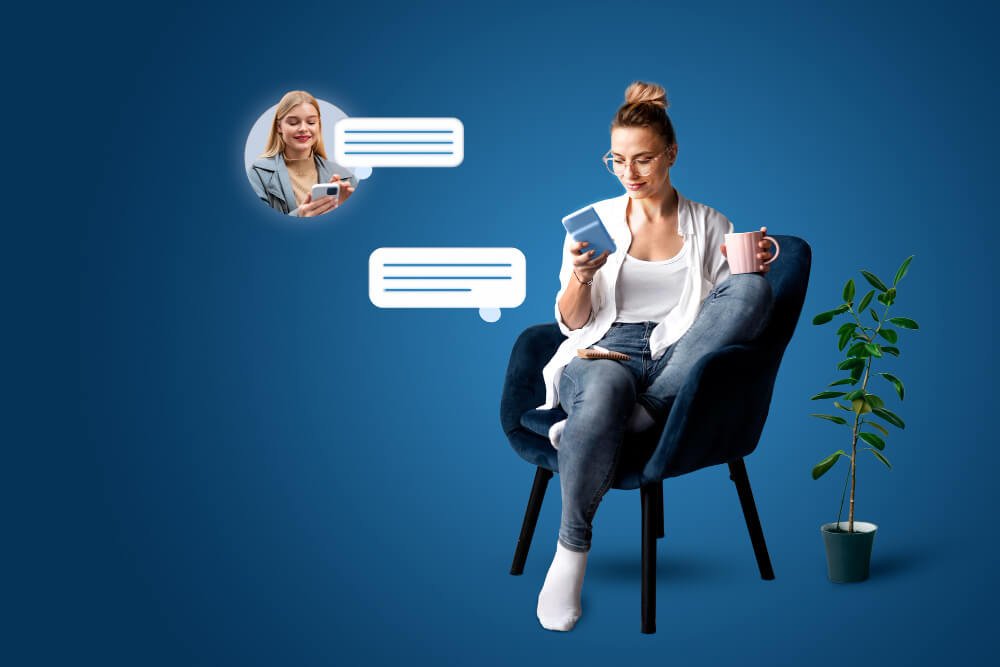
Multi-channel communication with chatbots involves using AI-powered virtual assistants to interact with customers across various platforms like your website, social media, and messaging apps. It’s like having a 24/7 customer service representative who can handle multiple conversations simultaneously.
Excellent customer service is key to building brand loyalty, and AI in customer service can significantly enhance your capabilities.
Chatbots can answer frequently asked questions, provide product recommendations, and even process orders, freeing up your human staff to focus on more complex tasks.
As per First Insight, 38% of female shoppers purchase beauty products online when they get up to 30% discount. Chatbots can help you promote such offers to a wider audience, potentially increasing sales.
Moreover, implementing this strategy strategically can help you make money with AI-powered chatbots as well by driving conversions and reducing customer service costs.
To leverage AI for multi-channel communication, consider integrating chatbot platforms into your website and social media channels.
You can leverage tools like Customers.AI (formerly MobileMonkey) for multi-channel chatbot creation and Chatfuel for Facebook Messenger bots. ManyChat is another great tool for Instagram and Facebook automation.
You can also leverage Botpress for open-source chatbot development and Drift for conversational marketing and sales. These AI-powered tools help us create engaging, helpful chatbots that can interact with customers across various platforms, improving their shopping experience and potentially boosting sales.
Counterfeit And Fraud Protection
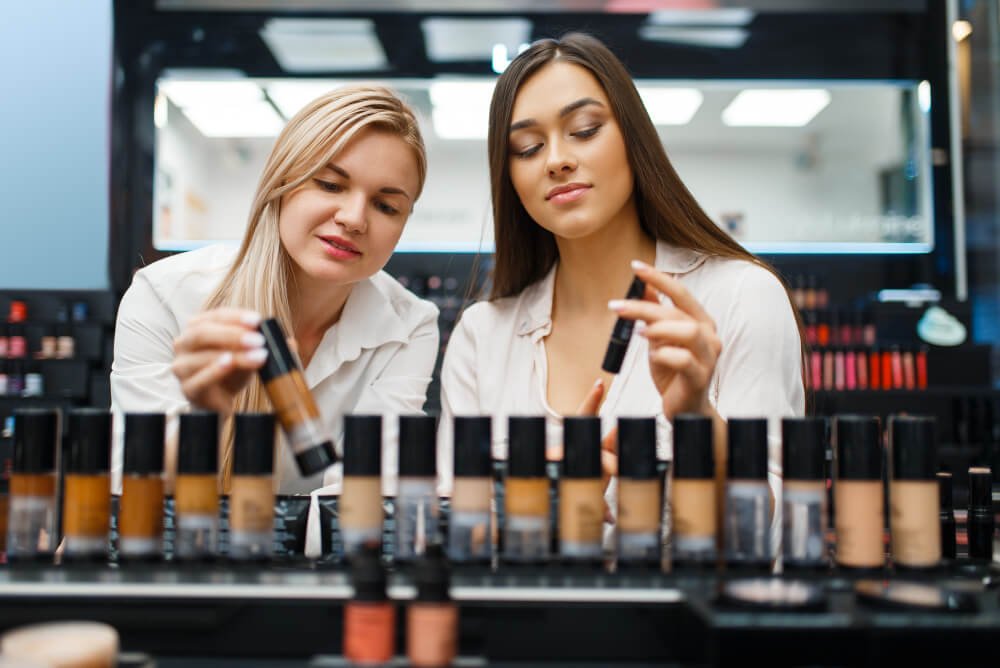
Counterfeit and fraud protection involves safeguarding your brand and products from unauthorized replicas and deceptive practices. It’s about ensuring that your customers receive genuine products and that your brand reputation remains intact.
Counterfeiting and fraud can severely damage your brand’s reputation and bottom line. In the beauty industry, where trust and authenticity are paramount, implementing robust protection measures is essential.
Leveraging AI tools for the beauty industry can help you detect and combat counterfeit products, identify fraudulent transactions, and protect your brand’s integrity.
To implement AI-powered counterfeit and fraud protection, consider using tools that utilize image recognition and machine learning to identify fake products and suspicious online activity.
You can also implement AI-powered tools like Entrupy for beauty product authentication, Systech for supply chain traceability, and Red Points for online brand protection.
You can also leverage Incopro for comprehensive brand protection services and DataVisor for fraud detection and prevention. These tools help us create a robust defense against counterfeits and fraud, ensuring that our customers receive genuine and safe products.
Protecting against counterfeits with AI tools also safeguards the brand’s reputation and the trust factor among customers.
What Are The Benefits Of Using AI In The Beauty Industry?
Incorporating artificial intelligence in the cosmetics industry isn’t just for big players; it’s a powerful strategy for businesses of all sizes.
Whether you’re a small startup or an established brand, AI offers a wealth of benefits that can propel your business forward. Here are the top five advantages of embracing AI in the beauty industry:
- Personalized Experiences: AI enables you to analyze customer data and preferences, allowing you to offer tailored product recommendations, customized skincare routines, and even virtual makeup try-ons.
- Streamlined Operations: From inventory management to supply chain optimization, AI can automate repetitive tasks, freeing up your team to focus on strategic initiatives and creative endeavors.
- Data-Driven Insights: AI-powered analytics tools can uncover valuable insights into consumer behavior, market trends, and product performance, empowering you to make informed decisions that drive growth.
- Enhanced Marketing and Engagement: Leverage generative AI in the beauty industry to create compelling marketing content, personalized emails, and targeted advertising campaigns that resonate with your audience.
- Innovation and Product Development: AI can accelerate product development by analyzing ingredient interactions, predicting consumer preferences, and even designing new formulations.
Additionally, AI-powered augmented reality lets customers virtually test products before buying. We’re seeing higher conversion rates and fewer returns as people can “try before they buy” from the comfort of their homes.
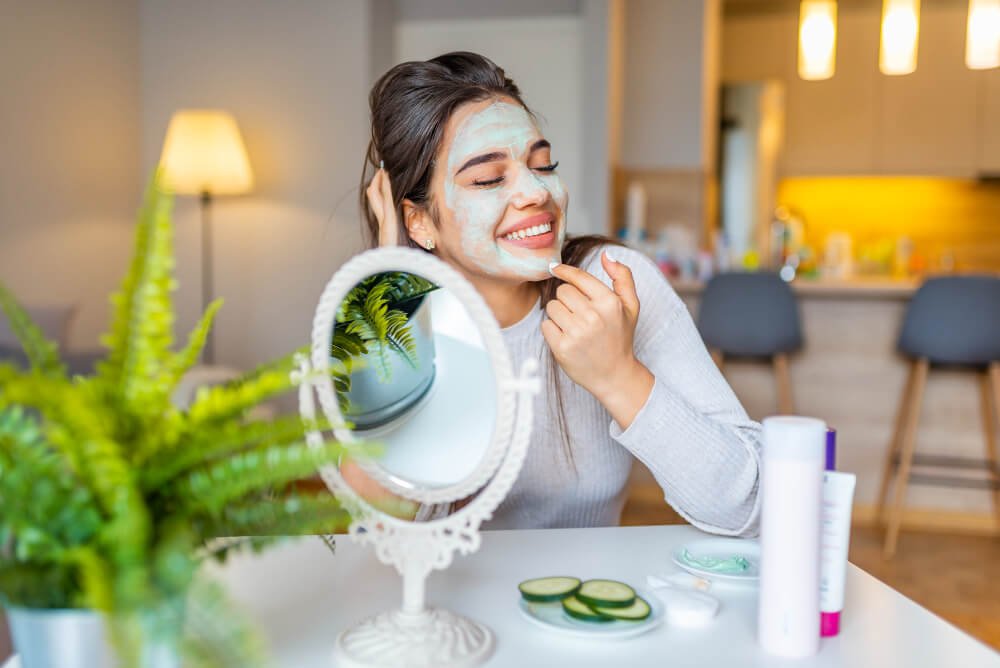
What Are The Challenges Of Using AI In The Beauty Industry?
While AI offers immense potential in the beauty industry, it’s important to be aware of the challenges that come with its adoption.
These challenges can be overcome with careful planning and strategic implementation, but they are worth considering as you start your AI journey. Here are the top five challenges of using AI in the beauty industry:
- Data Privacy and Security: Protecting sensitive customer data is paramount. We must ensure robust security measures and compliance with privacy regulations to maintain trust and avoid breaches. Investing in reliable AI in cybersecurity tools is crucial to safeguard your valuable information.
- Algorithm Bias: AI algorithms can sometimes perpetuate biases present in the data they are trained on. We must be vigilant in identifying and mitigating biases to ensure fair and equitable outcomes for all customers.
- Cost of Implementation: Implementing AI tools for the beauty industry can be expensive, especially for smaller businesses. It’s important to carefully weigh the costs and benefits before investing in AI solutions.
- Lack of Expertise: There is often a shortage of skilled professionals who can develop, implement, and maintain AI systems. Partnering with experts or investing in training can help bridge this gap.
- Consumer Acceptance: Some consumers may be hesitant to trust AI-powered recommendations or virtual try-on tools. Building trust through transparency and education is crucial for successful adoption.
Overcoming these challenges will pave the way for a more innovative and customer-centric future for the beauty industry. By embracing AI responsibly and strategically, we can unlock its full potential and deliver exceptional experiences to our customers.
Final Note: AI Is Reshaping The Beauty And Cosmetics Industry
AI in the beauty industry is not just a trend – it’s the future. From personalized skincare to virtual try-ons, AI is revolutionizing how we approach beauty. While challenges exist, the benefits far outweigh them. Whether you’re an established brand or looking to launch an AI-powered startup, now is the time to embrace these technologies.
Just as AI in the food industry has transformed how we produce and consume food, AI is reshaping beauty. We’re at the forefront of a new era in cosmetics, where data-driven insights and personalized experiences reign supreme.
You have the opportunity to be part of this revolution. By leveraging AI, we can create better products, provide exceptional customer experiences, and stay ahead in this competitive market. The future of beauty is AI-powered, and it’s brighter than ever.
People Also Ask
Who are the key players in AI in the beauty and cosmetics market?
Key players in AI beauty and cosmetics include L’Oréal (with Modiface and Hair Coach), Beiersdorf (NIVEA SKiN GUiDE), Procter & Gamble’s Olay (Skin Care App), Shiseido (Optune System), and CRIXlabs (DBA Quantified Skin). These companies are leveraging AI for personalized skincare recommendations, virtual try-ons, and product development.
Which beauty brand is using AI?
Odacite, a clean beauty brand, recently launched its first product using AI-created ingredients. They’re pioneering the use of AI in botanical-focused skincare manufacturing, showcasing how AI can innovate even in natural and clean beauty sectors.
Does Loreal use AI?
Yes, L’Oréal is actively embracing AI. They’re partnering with tech companies like Nvidia Corp. and experimenting with over 800 AI-generated beauty images. L’Oréal is using generative AI to transform customer engagement and explore new beauty paradigms.
Can AI replace makeup artists?
While AI can enhance makeup applications through virtual try-ons and personalized recommendations, it’s unlikely to fully replace makeup artists. Human creativity, personal touch, and the ability to adapt to unique situations remain invaluable. AI is more likely to complement and assist makeup artists rather than replace them entirely.

Sourav Das, a serial entrepreneur and self-proclaimed animal whisperer, has been juggling his love for content, SEO, and his ever-growing menagerie since 2012. Armed with a Masters in Aeronautical Engineering and an arsenal of 14+ certifications from tech giants like Google and Facebook, Sourav has been soaring high in the world of content strategy for over a decade.
When he’s not busy helping companies navigate the complex world of AI, NLP, and machine learning, you can find him tending to his 11 cats, 4 dogs, 60 pigeons, and a lone lizard who keeps wondering how it ended up in this chaos.
With a passion for research and a knack for business strategy, Sourav is on a mission to make the Earth a better place, one valuable article at a time.